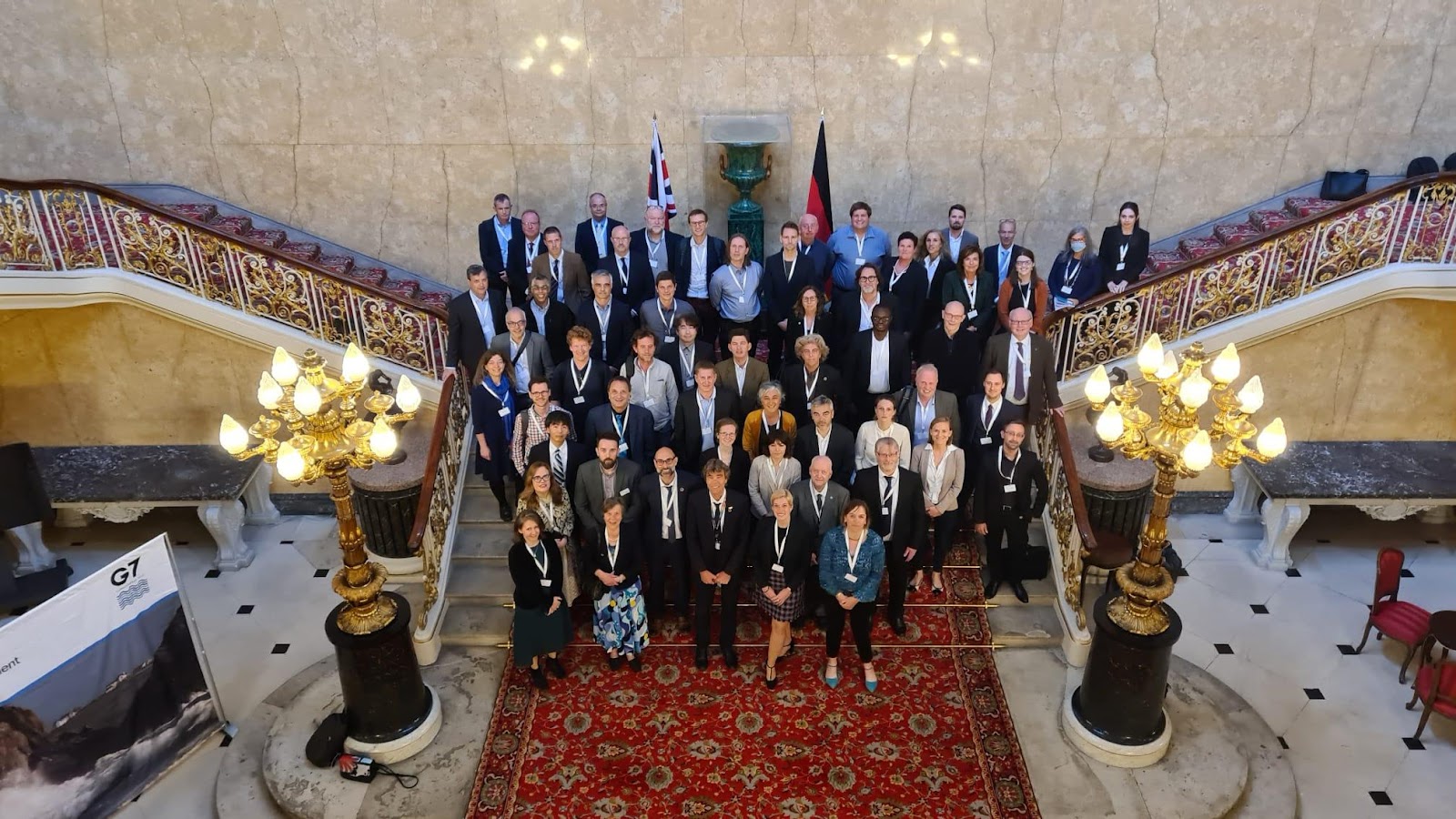The ocean economy is growing and the pressures on our seas and the ocean, including from over exploitation, pollution and climate change, have asserted significant stresses on the marine system. Digital twins are rich, virtual representations of objects and systems, in this case the ocean system, or a part of it. They allow us to track how and why the things we care about are changing and simulate what their futures could be, including by exploring ‘what if?’ scenarios. They can provide critical knowledge to plan and guide human activities in the ocean and coastal spaces to safeguard a healthy ocean and support a sustainable green-blue economy.
Experts and policy makers assembled at the first International Digital Twins of the Ocean Summit, May 2022 in London, with 90 attendees from 18 countries present at Lancaster House and around 400 attendees from over 40 countries online.
The two-day Summit explored progress in the development of Digital Twins of the Ocean capability, considered their requirements for infrastructure, described potential applications and defined a path forward.
